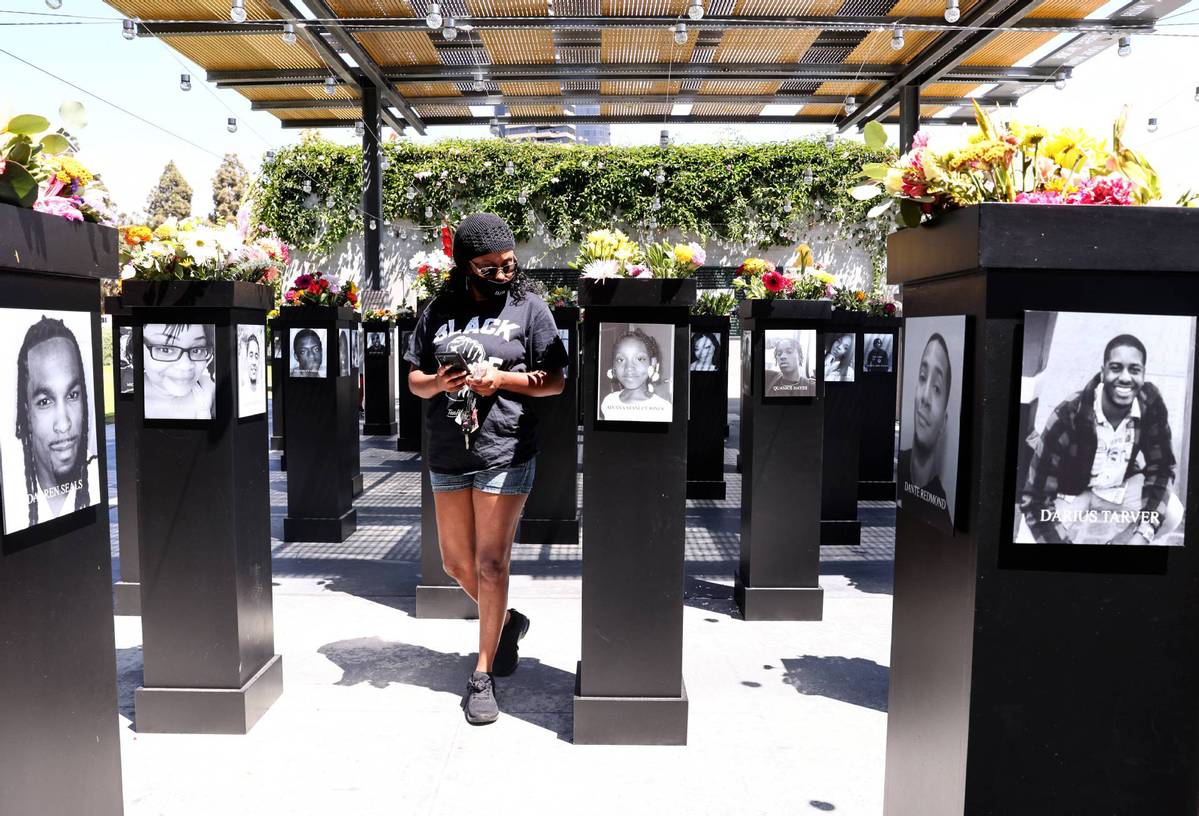State's report looks at slavery, reparations


California first state in the nation to examine its role in discrimination against black people
California on Wednesday became the first state in the US to release an extensive study detailing the harms of slavery and the racism that African Americans face in the state.
The almost 500-page report recommends the state implement a detailed program of reparations for descendants of enslaved African Americans but doesn't outline or recommend a specific financial plan.
It also recommends eliminating anti-black housing discrimination practices, providing funding for black schools, creating free healthcare programs, offering free college tuition for every black high-school graduate, legislating mandatory classes from kindergarten through high school on African American history, and mandatory cultural training for teachers.
Those who have been incarcerated should not lose their status as citizens, should be paid a "fair market rate" for labor, given mental health support and allowed to maintain trauma-free relationships with visiting family members, the report says.
"Without accountability, there is no justice. For too long, our nation has ignored the harms that have been — and continue to be — inflicted on African Americans in California and across the country," California Attorney General Rob Bonta said in a statement.
The report is the most extensive government-commissioned study on black Americans since the 1968 Kerner Commission. California Governor Gavin Newsom signed legislation creating the task force in 2020. Cities and universities have undertaken similar efforts, but California is the first in the nation to take the cause to the state level.
Wednesday's preliminary report, issued by the state's Justice Department, is the precursor of a final report due next year that will include more detailed plans of reparations.
Although California joined the union as a free state in 1850, its early government supported slavery. Members of groups like the Ku Klux Klan held prominent positions in local governments and police departments, the report said. Violence against African Americans peaked in the 1940s, when black Californians tried to purchase housing in white neighborhoods, the report said.
Even after slavery was abolished in the 19th century, discrimination continued to be felt by black community members in various areas, from political participation, housing, education, employment opportunities, courts, to cultural and intellectual life, according to the report.
California is home to the fifth-largest black population in the United States, after Texas, Florida, Georgia and New York. As of 2020, about 39.5 million people live in California, of whom an estimated 2.8 million people self-identify as black, according to the report.
Although African Americans make up nearly 6 percent of California's population, they are overrepresented in jails, youth detention centers and prisons. About 28 percent of people imprisoned in California are black, the report said.
In addition, disparities exist between white and black Californians in almost every corner of life, the report added. Black Californians earned an average of $53,565 in 2018, compared with $87,078 for white Californians.
Around 19.4 percent of African Americans in California live below the poverty line, compared to 9 percent of white Californians. Black Californians are also less likely to own a home compared with their white counterparts. In 2019, 59 percent of white households owned their homes, compared with 35 percent of black Californians.
Homelessness, a major issue in California, affects the black community disproportionately. Nearly 40 percent of the state's unhoused populations are black, the report found.
Amos Brown, vice-chair of the task force, said the study will develop measures "that will right the wrongs" collectively perpetuated against the black community.
"Other groups that have suffered exclusion, oppression, and downright destruction of human existence have received reparations, and we should have no less," Brown said.

































